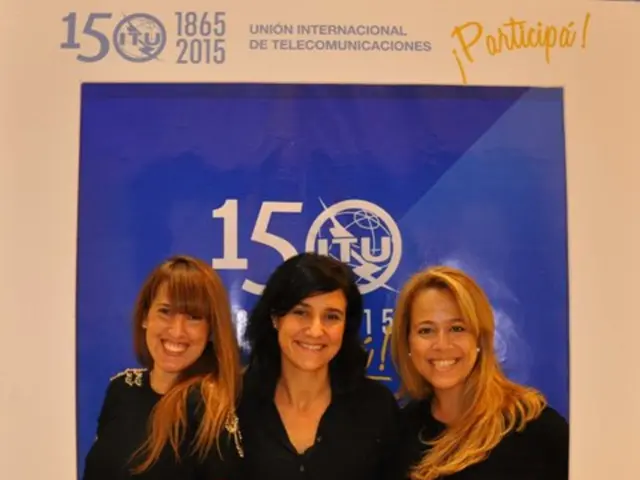Researchers expatriating from U.S. to locations promoting scientific advancements
Science's Exodus from America: Fleeing Trump's Cuts and Surveillance
An alarming 75% of over a thousand researchers - experts in their field - are planning to exit the United States, in search of a place that still upholds the value of science. This mass departure of brainpower is causing ripples across the global scientific community and putting the future of American innovation at risk.
One respondent succinctly articulated their sentiments: "Anywhere that supports science." That includes Dr. Kevin Trenberth, a climate expert who returned to New Zealand after decades in the U.S., weary of slashed budgets and political meddling under the Trump administration.
This isn't just a trickle of disgruntled geniuses; it's a full-blown exodus, shaking up the science world. Europe and Canada are welcoming the influx, while America risks losing its edge.
Escaping the USA: A Desperate Flight
The US was once the top choice for scientists, with groundbreaking projects like the Manhattan Project attracting the brightest minds from around the world. However, years of federal funding cuts are decimating labs nationwide. In early 2025, the National Institutes of Health axed numerous grants, branding some as "antithetical" to new priorities. NASA is eliminating around $420 million in contracts that don't align with the White House's vision, and the Environmental Protection Agency is slashing environmental research.
These moves aren't merely nudging scientists out the door; they're forcing them to pack their bags and flee. Postgraduate researchers feel the brunt of the squeeze, with over 80% eyeing the exit in a Nature poll. One grad student at a top American university wrote, "This is my homeland-I truly love my country. But my mentors are telling me to get out, right now."
The message is clear: America is no longer the land of opportunity for scientists.
"America First" Loses its Luster
One would think that a country shouting "America First" would make every effort to keep its brightest minds. But alas, that's not the case. The Trump administration, partnering with Elon Musk's Department of Government Efficiency (DOGE), has been ruthlessly slashing science budgets in a bid to trim federal fat.
They've fired thousands of federal scientists, rehired some after court battles, and left others in limbo. The assumption? America can afford to lose a few researchers. But the evidence tells a different story. A 2024 National Science Board report warned that even before these cuts, the US was struggling to hold onto talent. Now, with funding freezes and ideological crackdowns-such as targeted climate or vaccine research-scientists aren't sticking around to fight.
Duke economist Daniel Gross summed it up: "We've had a pretty good run over the past 60 to 80 years. Sometimes you don't realize the value of something until it's gone." This isn't "America First"; it's America shooting itself in the foot.
The New Destinations for American Brainpower
So, where are these scientists heading? Europe is the preferred destination, with France leading the charge. Aix-Marseille University launched a "Safe Place for Science" program, setting aside €15 million to host 15 American researchers for three years. Already, 40 U.S. scientists from Yale, Stanford, NASA, and the NIH have signed up. University president Eric Berton reveals they receive ten applications per day, mostly in healthcare, climate, and social sciences.
The Netherlands isn't far behind, with Education Minister Eppo Bruins pushing to entice "top international scientists" to their shores. Belgium's Vrije Universiteit Brussel has opened twelve postdoctoral slots, targeting American scientists tired of censorship. The UK is also courting American bio-scientists, and Canada remains a popular choice due to its close proximity, stability, and supportive research environment.
It's not just about the money; it's about feeling safe to think. American researchers are leaving due to fear of harassment over climate or diversity studies, immigration woes, and concerns about surveillance and unjust scrutiny. A transgender scientist told Nature, "The one-two punch makes it improbable that the life I want is viable here."
The Race to Lead the Future of Science
Lose scientists, lose breakthroughs. The US has ranked first in STEM fields for decades, but this edge erodes as talent bails. Think long-term: fewer innovations, a weaker economy, and less global influence. Evidence shows these cuts predominantly affect top-tier labs. It's not a matter of if; it's happening.
Countries like France and the Netherlands see this as an opportunity, ready to snatch up the departing minds and spark a new era of scientific dominance. They're not waiting for America to sort itself out.
Remaining Hopeful and Facing the Future
Not everyone is rushing to exit. Some scientists remain steadfast, arguing that America's institutions boast the best research facilities. Others believe they can do more good stateside. Climate scientist Rose Abramoff, for instance, is staying put, urging colleagues not to self-censor.
Protests are popping up, too. From Washington, D.C. to university campuses, scientists are marching against cuts, offering a glimmer of hope in these dark times. But with NASA, NIH, and EPA grants continuously under threat, hope might be hard to cling to.
Setting Sail for Unknown Waters
This global talent shuffle hasn't been seen on this scale since the 1930s, when Einstein and others fled Europe for the US. China is actively luring top talent with attractive offers and world-class facilities, making a return to Asia an increasingly enticing career move for many.
France's Research Minister, Philippe Baptiste, understands the gravity of the situation. "Many well-known researchers are questioning their future here," he wrote to his institutions. "We'd naturally wish to welcome them." It's not charity-it's strategy. Countries that grab these minds now could dominate science for decades.
The U.S. could recover, but it'll require substantial efforts to rebuild trust and invest in science. Until then, scientists are booking flights, signing contracts, and chasing "anywhere that supports science." A tragic turn of events for the average Joe, who will be impacted by the loss of new medicines, clean energy, and answers to the big questions. America's playing a dangerous game; the stakes are sky-high, and time's ticking.
References* Nature poll results and scientist quotes, March-April 2025.* Futurism.com, "The Majority of Scientists Are Now Considering Fleeing America," April 1, 2025.* NPR.org, "Countries boost recruitment of American scientists amid cuts to scientific funding," March 29, 2025.* The Independent, "Three-quarters of US scientists are considering leaving the country thanks to DOGE cuts," March 30, 2025.* Salon.com, "Scientists debate fleeing America because of Trump," January 3, 2025.* The Guardian, "European universities offer 'scientific asylum' to US researchers fleeing Trump's cuts," March 26, 2025.* Gizmodo.com, "We Are Witnessing a New Brain Drain as Scientists Flee America for France," March 13, 2025.
- The US's drastic cuts to funding for science and technology, surveillance, and the political meddling under the Trump administration have led environmental science, medical-condition, climate-change, and other scientific researchers to consider escaping the country.
- many countries such as Europe, Canada, and China are actively courting American brains by offering funding, world-class facilities, and a supportive research environment to lure these scientists away.
- the exodus of American researchers is causing ripples across the global scientific community, with environmental-science, medical-condition, climate-change, and other scientific research at risk of stagnating due to the US's loss of talent.
- As America struggles to rebuild trust and invest in science, there's a concern that the country will lose its edge in education and self-development, politics, and general news, ultimately resulting in a weaker economy and less global influence.





